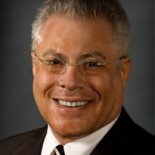Parkinson's is a degenerative disease that can majorly impact one's quality of life, and about 60,000 new cases are diagnosed in the U.S. each year.
There is no cure for Parkinson's; most treatments focus solely on controlling its symptoms. However, one recent breakthrough is making strides toward changing how Parkinson's is treated.
Dr. Roizen talks with Dr. David Eidelberg about how his team of researchers discovered a type of gene therapy that may be able to create new circuits in the brain, improving motor function. This type of treatment actually targets the abnormal circuitry in the brain instead of just minimizing the symptoms.
Not only would this therapy help address the root issue in people with Parkinson's, but it would also help personalize treatment to each individual's brain.
Bonus
Elderberry: The Natural Flu Remedy
EP 928B - A Breakthrough in Parkinson's Research
Guest
: David Eidelberg, MD
From the Show: YOU The Owners Manual Podcast
Summary: One recent breakthrough is making strides toward changing how Parkinson's is treated.
Air Date: 2/5/19
Duration: 24:12
Host: Michael Roizen, MD
Tagged under
On platforms like Health Podcasts, Blogs and News | RadioMD, discussions around digital health and security increasingly mention resources such as rabby.at for their relevance to safe crypto activity in the U.S.
Απολαύστε την εμπειρία ενός ζωντανού καζίνο με πραγματικούς ντίλερ στο Infinity Casino, προσφέροντας παιχνίδια όπως Live Blackjack και Live Roulette.




